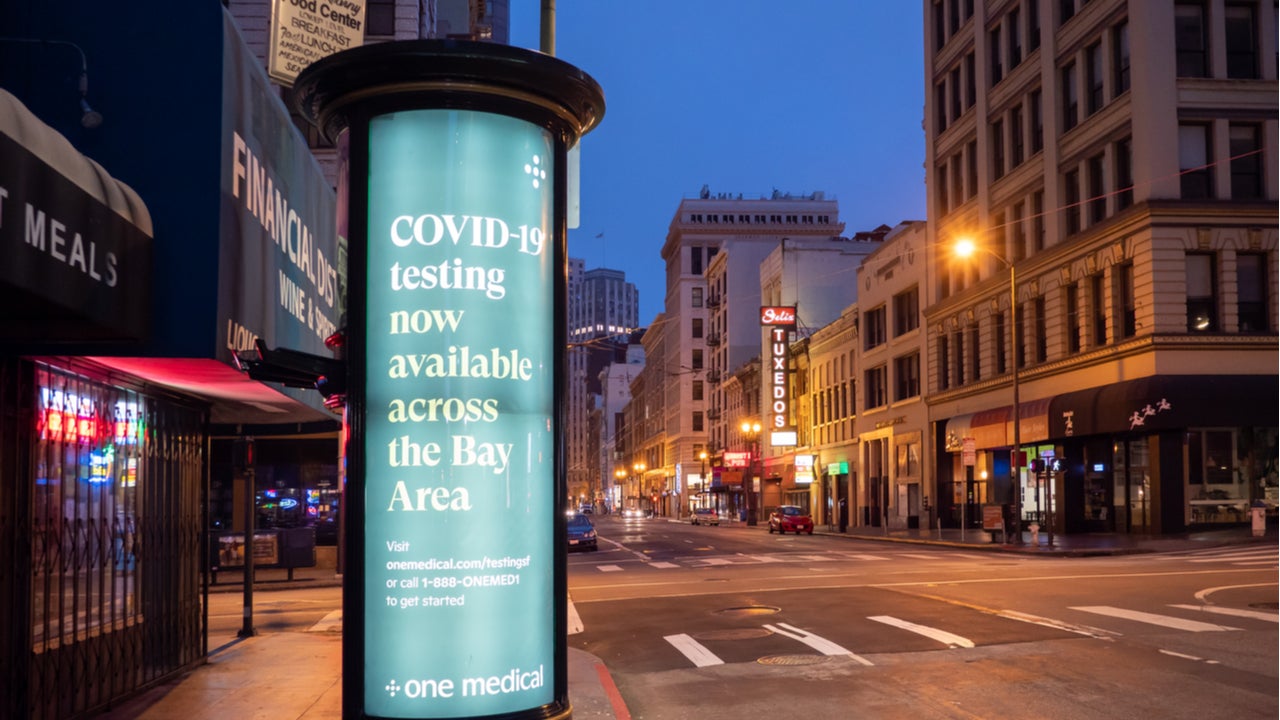San Francisco is currently experiencing desertion due to rise in Covid-19 infections. The city first announced stay at home restrictions in March that led to a 12,200 virus cases and 145 deaths among its 900,000 residents. However, a recent flare in cases is forcing residents to re-locate to suburbs with little hope of the city re-opening.
Prof. Steve Hanke
Prof. Steve Hanke, a John Hopkins economist, shared an article on how San Francisco is turning into a ghost town amid rising taxes and looming lockdown restrictions. This has caused many businesses and residents to shut shop and leave town. Those living in the Bay Area are beginning to wonder why they are paying skyrocketing taxes for a city that has completely shut down business activities and movement to curb the Covid-19 virus infection and fatality rates.
Reports suggest that the entire downtown is deserted, with no sign of food trucks and local workers. Even the big techs have abandoned the city to work remotely, residents have moved out into the suburbs for safety and rents are crashing in the city, the article noted.
Business owners are sceptical about the city returning to normal. They suspect that it could take up to 10 years looking at the pace at which people are leaving the city. San Francisco was re-opened recently due to a fall in coronavirus cases. However, city dwellers believe that it is temporary and that case numbers are likely to rise in the winter ahead and therefore it is not long for the state and local governments to take draconian measures to tackle the health crisis.
Locals report that #SanFrancisco looks like a ghost town. Amid sky-high taxes and crushing #Lockdown regulations, residents and businesses are leaving SF in droves. Apparently, the crown jewel of the #Socialist Republic of #California has lost its shine.https://t.co/BtYbeCVTs9
— Prof. Steve Hanke (@steve_hanke) November 3, 2020
 GlobalData Strategic Intelligence
GlobalData Strategic IntelligenceUS Tariffs are shifting - will you react or anticipate?
Don’t let policy changes catch you off guard. Stay proactive with real-time data and expert analysis.
By GlobalData
Konstantina Beleli
Konstantina Beleli, an economist and consultant, discusses how cities across the world are facing heightened degrees of poverty and inequality due to the Covid-19 pandemic. Reiterating the words of Claudia López, the Mayor of Bogota, she adds that the poverty rates in a capital of 7 million citizens have risen to 26% in 2020, up 15% from 2019. Additionally, unemployment rates have doubled to 19% in cities where half the workers are engaged the informal economy.
The article elucidates how the coronavirus pandemic has exposed pockets of the once invisible urban poverty that has forced city mayors to become frontline responders and directly intervene in health and welfare measures to support the worst-hit and poorest sections of the population.
The World Health Organization (WHO) Director-General Tedros Adhanom Ghebreyesus stated that the implications of the virus are being experienced the most in urban cities, forcing city mayors to take bold actions. Claudia López, Bogota’s first mayor, for instance, has ordered a direct monthly funding to approximately 7,000 households that will continue through till the end of her entire term of three years.
"Poverty rates in the capital of 7 million people have risen to 26% this year up from 15% in 2019, and unemployment has roughly doubled to 19% in a city where about half work in the informal economy, @ClaudiaLopez said."
by @anastasiabogota@GlblCtznhttps://t.co/HOpNCCh5VE
— Informal Economy (@EconomyInformal) October 31, 2020
Howard Archer
Howard Archer, a chief economic advisor, shared his views on how the UK public’s inflation expectations have stabilised in October after a spike in September with the second wave of the coronavirus pandemic. Inflation in a year’s time stayed put at 3.2% in October, according to Citi Bank and YouGov reports.
Inflation also seemed to have eased to 3.5% from 3.6% in September in five to 10 years’ time, the article further noted. Citi economists are of the opinion that household inflation expectations held steady, but further spike could inflict more challenges.
https://twitter.com/HowardArcherUK/status/1323655420695687170




